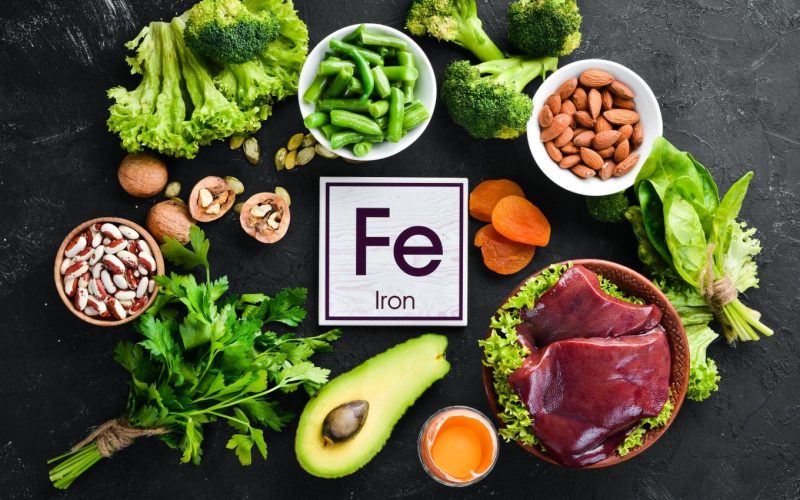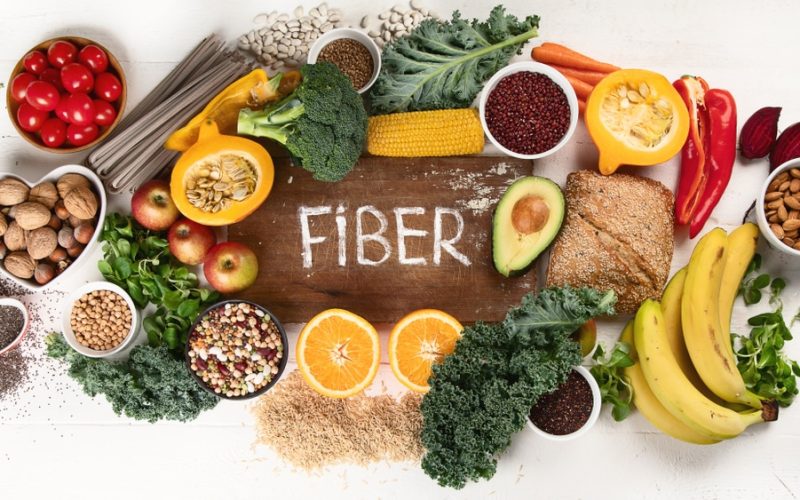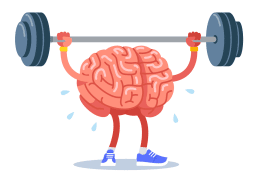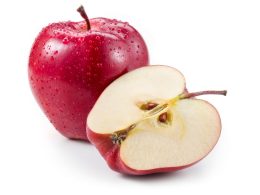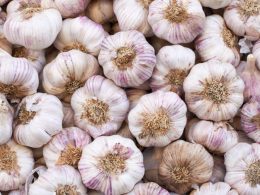Iron is an essential mineral needed by your body. It plays an important role in the production of oxygenated blood. The circulation of oxygenated blood to all parts of the body supports life and optimum health.
About 2/3 of your iron are present in hemoglobin, the compound in your red blood cells responsible for picking oxygen, and it is also responsible for the red color of the blood.
There are many amazing roles iron plays in your body and that is what this post is all about. We will be exposing the health benefits of iron and rich sources of iron in nature.
The Functions of Iron in the Human Body
Your body needs iron for proper growth and development. It promotes robust health and even forms a major component of proteins that take part in metabolism.
Iron helps your body produce red blood cells. It forms part of hemoglobin, the molecule responsible for carrying oxygen in the blood. The human body can even store up to 25% of its iron for future use.
This helps in cases where you are not taking in enough iron. This will prevent anemia for a while of the intake of iron suddenly stops. 70% of your body’s iron is present in myoglobin and hemoglobin.
The main function of hemoglobin is to transfer oxygen from the lungs to the cells and tissues of the body. Myoglobin is present in your muscle cells and it is responsible for accepting, storing, transporting, and releasing oxygen in them.
5% of the iron in your body is used in making many proteins that take part in some enzymatic reactions. Also, 25% of your body’s iron is stored in ferritin, this compound is present in your cells.
Ferritin’s store is worth three years of iron supplements in men and about one year in women (due to their monthly duties). This is why women are more prone to anemia than men. Children are also at high risk of anemia deficiency.
Iron is highly important in the human body and its role cannot be underestimated. A deficiency in iron is highly dangerous and unpleasant. It can even lead to death if not handled well and promptly.
Iron-deficiency anemia is one of the most common global nutritional deficiencies.
Health Benefits of Iron
Provides hemoglobin
One of the main and well-known benefits of iron is the formation of hemoglobin. Hemoglobin helps your red blood cells pick up oxygen and transport them to all parts of the body.
A constant supply of iron helps the production of hemoglobin and this, in turn, will reduce your risk of anemia. Women and children need to increase their intake of iron-rich foods because they are more prone to anemia than men.
Promotes healthy pregnancy
The production of blood and the red blood cells increase dramatically when you are pregnant. This is done to provide the developing fetus with oxygen and nutrients.
Also, your body makes good use of your iron stores during pregnancy. So you have to increase your intake of iron-rich foods during pregnancy.
Low levels of iron during pregnancy can lead to premature birth, low birth weight, low iron stores in the newborn, impaired behavioral and cognitive development in newborns, and many other birth defects.
Pregnant women deficient in iron might be prone to infections because iron boosts the immune system.
Boosts muscle functions
Iron is needed by your muscles, without it, your muscles cells can’t get oxygen. And oxygen is needed for muscle contraction. A deficiency in iron will make your muscles lose their elasticity and tone.
One of the common signs of iron deficiency in the body is muscle weakness.
Boosts mental performance
Iron has a huge positive impact on your brain and its functions. Iron boosts the supply of oxygenated blood to the brain. The brain alone uses 20% of your oxygenated blood.
This will boost the health and performance of your brain. An obstruction in the flow of blood to the brain can result in a stroke. Proper blood flow to the brain boots cognitive abilities and help create new neural pathways.
This, in turn, will prevent cognitive disorders. A good and effective way to take care of your brain is to increase your intake of iron-rich foods.
Relieve restless leg syndrome
Do you find it difficult to put your legs in one place? Do you constantly shake your legs even when seated? You might be deficient in iron, a lab test will help you know your iron levels.
Low level of iron in the bloodstream has been linked to restless leg syndrome. People with restless leg syndrome also experience muscle spasms.
In severe cases, a doctor can prescribe iron supplements for you. Please take according to prescriptions and don’t take it for a long time because supplements have a high risk of causing toxicity.
Controls body temperature
Another important function of iron in the body is the regulation of temperature. One interesting thing about this is that iron regulates itself as per the absorption capacity of your body.
Iron contributes to enzymatic and metabolic functions that help keeps your temperature stable.
Carries oxygen
One of the most important health benefits of iron is its role in carrying the life-giving oxygen which we depend on. Iron transports oxygen to all parts of your body by forming a huge part of hemoglobin and myoglobin.
These two compounds are responsible for carrying oxygenated blood to all body cells. This helps your body perform well.
Prevents and treats anemia
A deficiency of iron is what causes anemia in the first place. So, increasing your intake of iron-rich foods will prevent anemia in the first place. It will also treat anemia and in severe cases of iron deficiency, supplements can be used.
Anemia is a terrible condition affecting millions in the world today. Changing your diet can both prevent and treat anemia.
Prevents chronic diseases
Chronic diseases like kidney failure anemia and diseases of the intestines and excretory systems are prevented and their symptoms relieved when the intake of iron is upped.
Iron plays important roles in other systems of the body like the excretory system.
Reduces the risks of anemia in women
Women are more prone to anemia than men because of their monthly menstruation. Pregnancy also depletes the stores of iron in a woman’s body.
Increasing your intake of foods rich in iron will help women reduce their risks of anemia.
Promotes the production of neurotransmitters
Important neurotransmitters like serotonin, norepinephrine, and dopamine all boost your health in many ways. The secretion of these neurotransmitters relieves pains, symptoms, and even boosts recovery.
They take part in a lot of activities that involve the neurons and the human brain and iron are used in making these neurotransmitters.
Boosts immunity
Iron plays an important role in building your immune system. It strengthens your immune system and makes it more aggressive in fighting invaders and damaged cells.
Your immune system depends on oxygen and without hemoglobin, this is not possible. Your defense/healing system needs iron to make healing and recovery happen.
Promotes energy
Iron takes part in energy metabolism in your body. One of the most common signs of anemia is weakness and extreme fatigue. This is why chronic fatigue is associated with iron deficiency.
It also supports organ systems because iron forms important constituents like myoglobin, catalase, and cytochromes.
Without this, a number of organ systems will slow down and you would be deficient in energy.
Boosts sleep and concentration
Iron boosts sleep and reduces the symptoms of anemia. It helps improve and maintain a healthy circadian rhythm. It results in proper cell count and this will help maintain healthy blood pressure.
High blood pressure can keep people up late at night. Iron also improves concentration by helping you sleep better. Sleep deprivation affects concentration and other mental functions.
Iron also boosts blood flow to the brain and this will improve cognitive performance.
Symptoms of Iron Deficiencies
Common signs and symptoms of iron deficiency are:
- Body weaknesses
- Severe fatigue
- The inability of the body to function in an optimal way
- Skin ailments
- Brittle nails
- Extra smoothness on your tongue
- Many enzymatic processes that depend on iron will be obstructed and this can lead to metabolic disorders like slow metabolism or your metabolism can shut down totally.
Side Effects of Iron Supplements
Taking iron supplements can pose some undesirable side effects because it raises the risks of toxicity unlike plant foods. It is impossible to get toxic from eating iron-rich foods but this is very easy when you overtake iron supplements.
That’s why if you are placed on iron supplements, you should stick to the prescription and let your doctor know that you don’t intend to take it for a long time.
Excessive intake of iron supplements leads to the accumulation of iron in the liver and other vital organs of the body. It also leads to the creation of free radicals in the body and also increase the risks of cancer.
High doses of iron supplements can also cause:
- Stomach pains
- Nausea and vomiting
- Headaches
In very rare cases, an overdose of iron supplement cause:
- Seizures
- Internal bleeding
- Coma
- Death
Taking iron supplements along with other medications can also reduce the effectiveness of the medications. Some of the medications are those used in treating thyroid problems and restless leg syndrome.
Medications used in treating reflux disease can also affect the absorption of iron from foods and supplements. If you are on any medication, you have to ask your GP of you can take iron supplements.
And it is not even advisable to take supplements without prescription.
Important Sources of Iron
Rich sources of iron in nature are:
- Legumes
- White beans
- Whole grains
- Dark chocolate
- Lentils
- Berries
- Green leafy vegetables
- Potatoes
- Soybeans
- Chickpeas
- Cereals
- Tomatoes
- Spinach
- Cashew nuts
- Bread
- Oyster
- Broccoli
- Eggs
- Sprouts
- Beef liver
- Turnip
- Tofu
- Whole wheat bread
- Dry fruits
- Vitamin C-rich foods help the absorption of iron. Increase your intake of citrus fruits and grapes.
References;
- Restless legs syndrome, insomnia and quality of life in patients on maintenance dialysis; OA
- Enzymatic reactions of iron; Google Books
- Iron deficiency and neurotransmitter synthesis and function; CC
- Anemia and menstrual blood loss; NCBI
- IRON ABSORPTION. IV. THE ABSORPTION OF HEMOGLOBIN IRON; NCBI
- Determination of iron in heme compounds: II. Hemoglobin and myoglobin; SD
- Biological availability in animals of iron from common dietary sources; ACS
- Iron Status and Restless Legs Syndrome in the Elderly; OA



